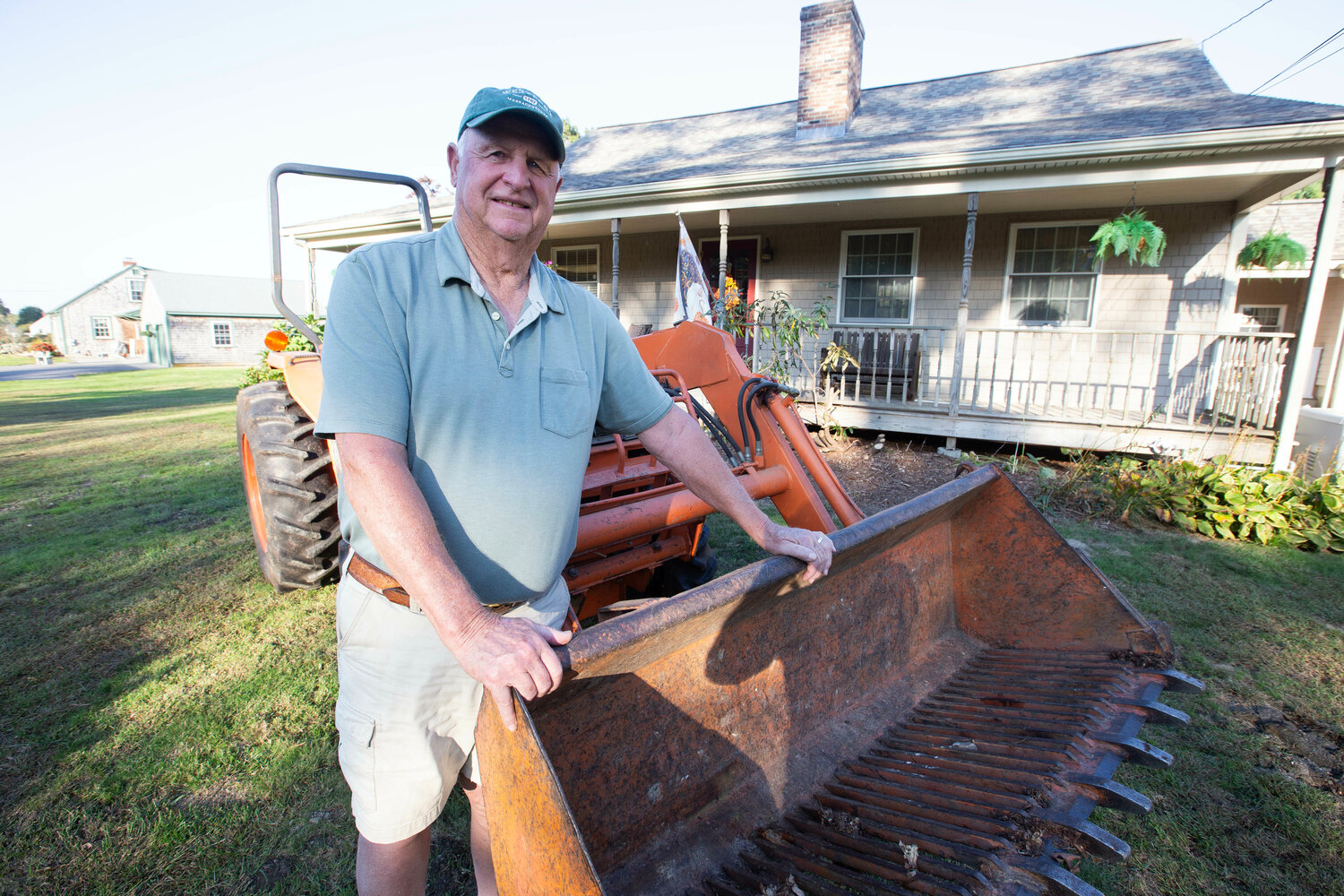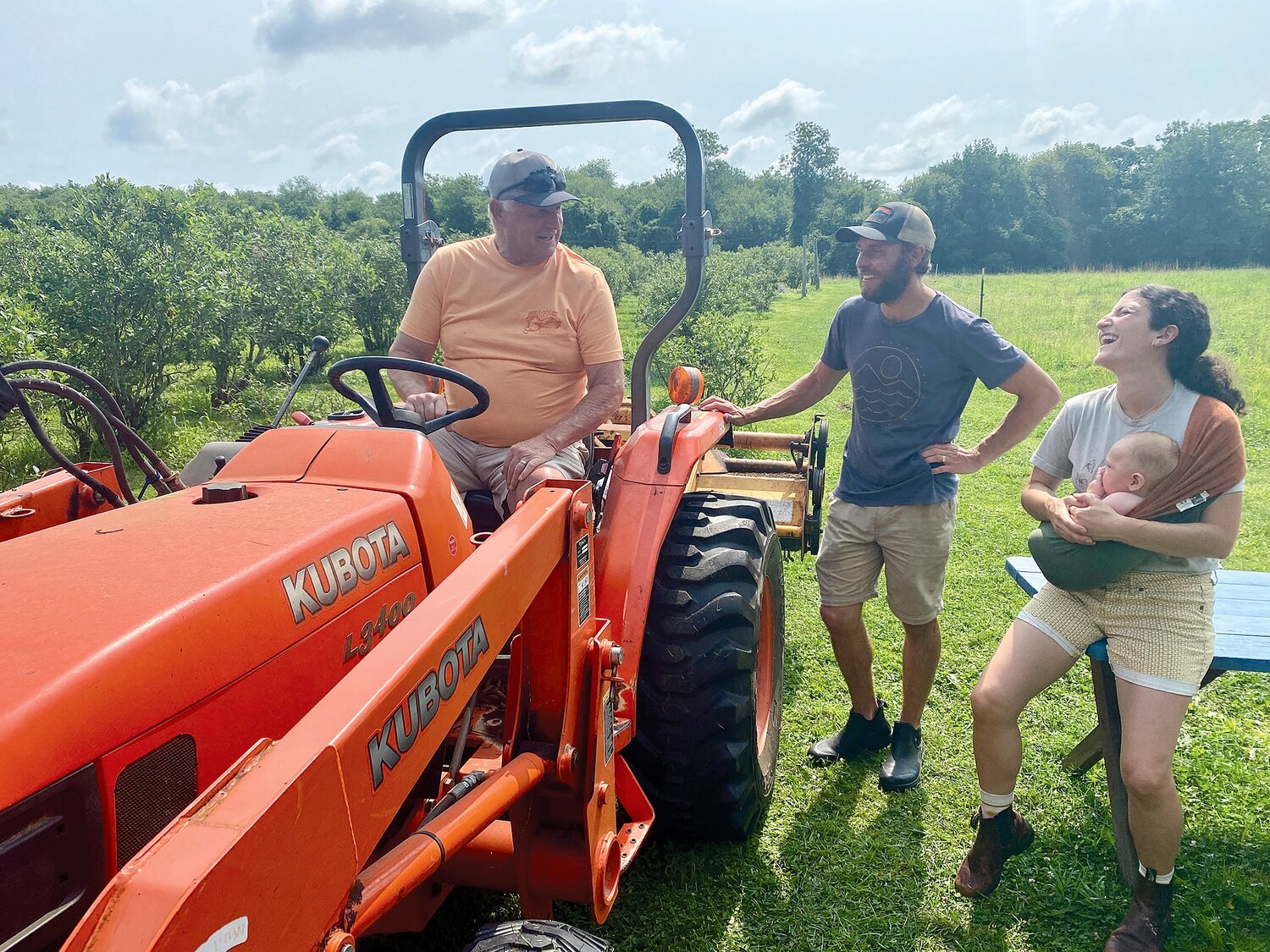An old-time Westport farmer looks back — and ahead
Bob Pierce sold his Berry Hill Farm earlier this year, but still loves the farming life
Editor’s note: Former Berry Hill Farm owner Bob Pierce has been a fixture in Westport his entire life. And though he’s stepped away from his beloved farm following its sale to Adam and …
This item is available in full to subscribers.
Please log in to continue |
Register to post eventsIf you'd like to post an event to our calendar, you can create a free account by clicking here. Note that free accounts do not have access to our subscriber-only content. |
Day pass subscribers
Are you a day pass subscriber who needs to log in? Click here to continue.
An old-time Westport farmer looks back — and ahead
Bob Pierce sold his Berry Hill Farm earlier this year, but still loves the farming life
Editor’s note: Former Berry Hill Farm owner Bob Pierce has been a fixture in Westport his entire life. And though he’s stepped away from his beloved farm following its sale to Adam and Carissa Davenport earlier this year in a deal facilitated by the Westport Land Conservation Trust, farming, and a love of Westport, still runs in his veins. He recently sat down to talk about his life in town, and why he decided to step aside.
Tell us about growing up?
My grandparents lived four houses down from here ... Ann and Charlie. My grandmother came over from Ireland in the late 1800s and they landed there on that farm. It was around 47 acres when it was all together. The house was built in the 1700s. The boards go up all the way to the top from the first floor. In the room upstairs, there are the great big beams, and they used wooden spikes to hold it all together. The wood’s all hand-hewed. It's gorgeous.
My grandmother used to have an egg route in Fall River so every week they’d deliver the eggs and some of the vegetables and stuff and take that to the people.
When my grandparents passed, their farm was divided between my father and my uncle. I grew up in that house, where the chicken coops are. At that time, my father was working at Morse Twist Drill in New Bedford. And in that time he built a chicken coop, we had chickens, and by the time he got through it we had 1,000 chickens, plus we planted the garden. So he’d sell the eggs, and of course it was more so than what my grandmother had. It’s picked up like the rest of the farmers these days, you had to do more and more.
We had a lot of cow farms back then that you don’t have today. And those who continued, they had to increase because before whatever you made on 50 to 100 head of cattle, now you need to have 300 to 400 just to do it. And they can’t do it all themselves either because now they’ve had to increase so much that they’ve had to get the extra help. Back in my grandmother and grandfather’s time, that smaller scale wasn’t a problem.
Was Berry Hill always berries?
Where the blueberries are now, that was all strawberries. That was at a time when you didn’t have stuff being shipped in from California, shipped in from Florida. Everything was local.
And then, after I graduated I was in the Coast Guard Reserves, and when I got my active duty all done, I joined in with my father and planted more strawberries. So we had this whole thing, all in strawberries. But it just got to a certain point when everything was being shipped in from California and ... Florida and it got to a point — you know, you’re trying to compete, and, it just wasn’t worth it at that point. So we eliminated the strawberries, and in the meantime we had already started planting the blueberries.
So I was doing the farm, I was painting, I was banging nails, and I was fishing too. And so then I got a job part-time at the post office, and then lucky enough I think it was in ’72, I got a full time job. I still helped on the farm, helped keep the farm going with my father, and I did that until I took over full time in 1992. And meanwhile I was also working in Westport as a Deputy Shellfish Warden.
I moved the farm stand down here closer to my house, and I continued everything growing. I grew a lot a lot of turnip which started when Al Lees came to me because his supplier of Macomber turnip said he wasn’t going to do it anymore. And so I started to do that, and I did that until about four years ago. And at the end I was supplying him with over 300 bushel.
Going back to the blueberries, I had one year that was a difficult year. That was about five years ago, when the winter moths come in. By the time you know it, it’s too late, because they’re inside the bud. So the following year, I started to pay attention in the winter when you see all the winter moths flying over. I got some oil (that) you spray on there to smother the eggs, so that year I put it on and I had a little bit of trouble but not a big deal. And it’s been good sailing since then.
Overall, is it harder to run the operation these days?
Again, it’s tough for young people to do this kind of stuff today and make a decent living just doing that. You young people today, you really gotta push. And everybody’s battling for that same dollar. When we first started, we had the market. Even right up until me turning this thing over the Carissa and Adam, I have the market to give them.
Tell us about your decision to walk away?
It wasn’t easy. It wasn’t easy. This started several years ago. I ended up having having heart surgery and it worked well — I’m still here!
A few people ended up coming by and I’d talk to them ... and I said ‘Hey, come up with some kind of understanding, I’d like to see it keep on going on’ and some people had interest but it never went anywhere.
How did the land trust get involved?
So the trust was looking for blueberries and (executive director Ross Moran) stops by to pick up the blueberries, and we’re talking. And I say, ‘You know, I’m at a certain point, I’ve asked a few of the farmers around here, ‘Do you want to run it and add it your operation?’ and I said I haven’t had a lot of interest in it. Now I’m at a point where I’m getting older, it’s getting more difficult. My kids aren’t interested in the farming; you know they’ve got other things going on.
And (Moran) says, ‘After the season’s over, let’s sit down and talk.’ So we talked and this is what we came up with. And the rest is history. But it wasn’t easy. The process, once it got going, it was pretty easy. It took months, but I thought Ross and the whole trust did an absolutely wonderful job. They took care of everything, and they always let me know everything that was going on. I can’t think of handling it better than they did.
Was it hard for your kids?
I talked with them before I did it. I said, ‘I don’t want to see the farm being sold and have houses all over the place. And, this is what I’m going to do. And if you disagree with anything that I’m thinking of doing, say so and we’ll talk about it and we’ll work it out from there.’ And they said, ‘OK.’
My oldest one, she goes down into the field and she comes back and she says, ‘You know, I’m kind of sad,’ and I said, ‘Well, if you look at it this way, it’ll always be here. We have a nice young couple, and they’re very enthusiastic about the whole thing and I think it’ll be fine. It’s better than having houses here. Maybe you could turn around and sell house lots and maybe you’ll get more out of it but that’s not going to change my life. It’s not going to change my life one bit.’
So that’s where I’m at. I’d go over every week and just check in, ask how’s everything going, this and that, just to make sure to see if they have any questions. But they have their other little business going, they have a little bit to learn there, but again, it’s not rocket science. It’s “Get out there and get busy.”
So I have no problem whatsoever.










